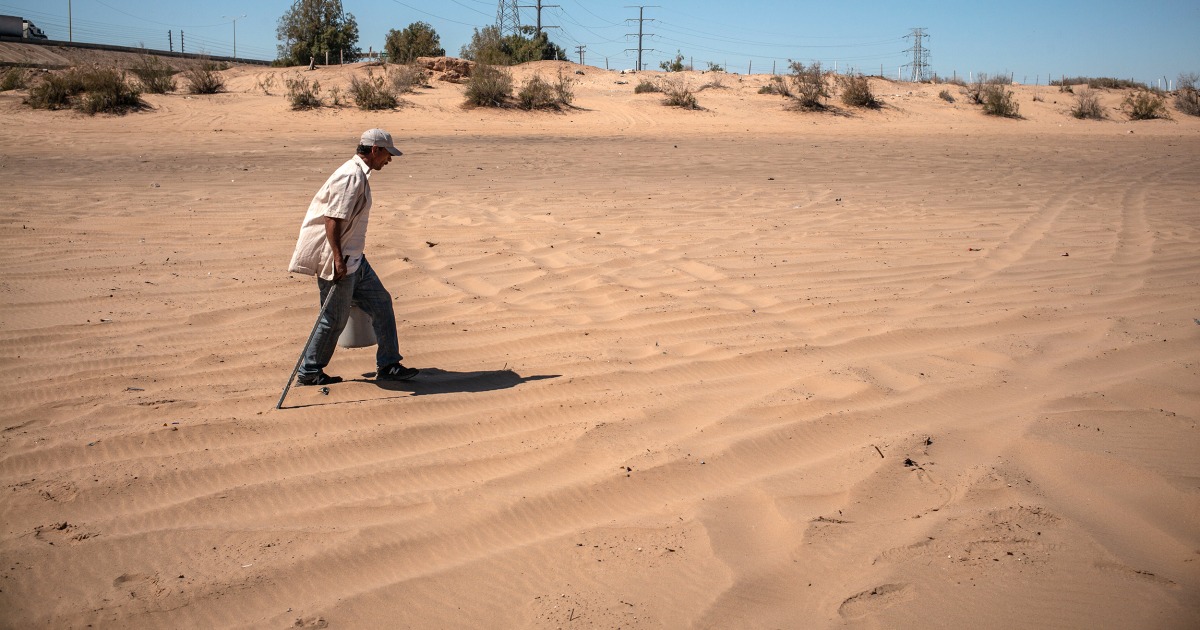
Hell on Earth
But heat also kills. In 2019 there were at least eight deaths in Mexicali associated with high temperatures; in 2020, they were 83.
“People cannot live with those temperatures, that is, people die”, Zavala said, “although they are used to the heat, even small increases break the threshold for the human body to survive.”
On Aug. 14, 2020, Mexicali registered 122 degrees Fahrenheit, breaking the record of 121 that dated from August 1981.
Froilán Meza Rivera, a veteran journalist and writer from northern Mexico, consulted the archives of the Secretariat of Hydraulic Resources. It appears that in July 1966, in Riíto, a Mexicali community, a thermometer reached an unprecedented figure of 140 degrees Fahrenheit. And that was its limit: the mercury rose to the top and could not measure any more.
It would be the highest figure in the world: according to the World Meteorological Organization, the highest recorded temperature is 134 degrees Fahrenheit on July 10, 1913, in California’s Death Valley.
The region is exposed to the worst possible scenarios in terms of a climate emergency, according to Roberto Sánchez Rodríguez, an academic from the Colegio de la Frontera Norte. “Governments have mismanaged resources, and that is why there is less water available,” he said.
The narcos also fish
Since 1993, the fishing territory of the Cucapá has been included in the Upper Gulf of California and the Colorado River Delta Biosphere Reserve, which has a surface area of 2.3 million acres. This protected area was created to preserve the flora and fauna, such as the vaquita porpoises and the totoaba, which are at the brink of extinction.
“We abide by the rules, we know that species have to be protected because we are an Indigenous people, we use the nets and equipment that the government asks of us and we do not go out when it’s not our turn,” said Rubén Flores, captain of a panga, a boat used for traditional fishing.
An earthquake in 2010 also affected fishing. “It left us huge cracks that got bigger, and that doesn’t allow us to fish like before,” said Hilda Hurtado Valenzuela, 68, president of the Sociedad Cooperativa Pueblo Indígena Cucapá, one of the associations that groups together the people who are still fishing.
“Now the ocean currents enter where the old banks of the river used to be, they damage it and we are left without part of our territory,” said Hurtado, who said she was born on the banks of the Colorado River.
Source: | This article originally belongs to Nbcnews.com









